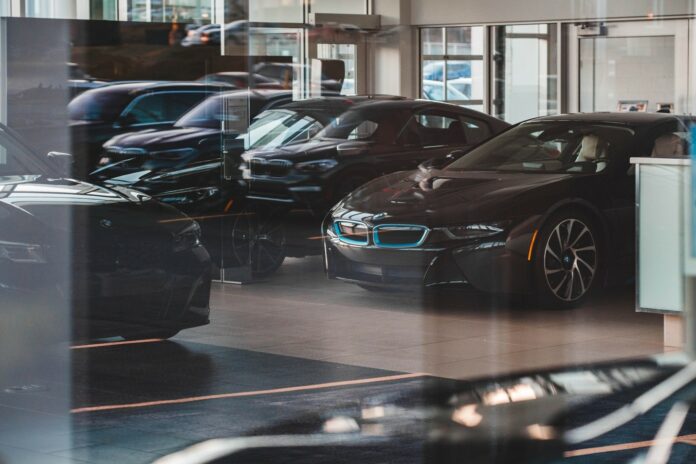
It is no secret that owning a car is indeed expensive. A vehicle alone is not cheap, and you’ll probably need to save money for quite some time before purchasing it. However, the expenses do not end there. There are still plenty of extra and hidden costs after you decide to buy a car. So before you go to your car dealer and sign all the paperwork, read this first to understand if you’re making a wise investment for yourself.
Car Insurance Costs
The first thing you should consider after your purchase is getting your car insured. Car insurance protects both your vehicle and your financial liability. A worst-case scenario is getting into a car accident without insurance. In that instance, paying for damages, repairs, and potential injuries will surely break the bank.
There are various factors to consider when determining insurance premiums. Factors may include the make and model of the car, the manufactured year, and the insurance company’s overall risk to insure it. On average, full-cost coverage car insurance in the United States costs around $1,674 per year or $139.50 per month.
Financing Charges
Not all people can buy a car in cash. In fact, most buyers will try to take out a loan so they can purchase one. As with any other type of loan, borrowers incur additional financing charges. These are the actual charges that you would incur for taking out the loan. These costs are calculated based on the loan amount, term, and interest rate.
In line with this, it’s a great idea to be aware of your credit score, car type, and the loan term you would prefer. All of these help in determining your interest rate. A bonus tip: If you want to save on financing charges, you should try to save for as large of a down payment as you possibly can.
Sales Tax and Registration Fees
Whether you choose to buy a brand new or a used car, both will still be subject to sales tax. The amount, of course, will depend on where you live. There will be different car sales taxes by state, ranging from 3% (North Carolina) to as high as 11.50% (Oklahoma).
When added to the fees associated with registration and licensing, the average total cost per year hits around $668. Make sure to consult your car dealer or a tax authority to know how much you owe in taxes. Knowing this will help a lot in budgeting things accordingly.
Car Maintenance
No matter the type of car you choose, it will eventually begin to experience wear and tear over time. This factor is why car maintenance is very important. It isn’t something you can skip. Basic car maintenance costs around $100 and above per year. Here are some of the most significant car maintenance costs that you should take note of:
Type of Service
When You Should Do It
Average Cost
Oil and Filter Change
Every 5,000 to 7,000 miles
$20 to $100
Tires
Varies on mileage
$50-$300 per tire
Wiper blade replacement
Every 6-12 months
$7 to $15
Multipoint inspection
Recommended at every visit
Varies
Engine air filter replacement
Every 20,000-60,000 miles
$20-$75
Brake pad replacement
Every 30,000-50,000 miles
$100-$350
TOTAL
$197 to $840 (or more)
Car Shipping
If you love traveling and frequently go on trips, you should also consider researching how much it costs to ship a car. Shipping your car is incredibly convenient when moving or traveling out of state and helps ensure that your vehicle arrives on time and in good condition. Of course, you always have to make sure the car transportation company is reliable and reputable. So, don’t forget to do your research on the company before entering any agreement.
Car shipping prices differ from company to company, and several factors may affect pricing. One factor is the distance between your current place and your destination. On average, expect to pay around $50 for every 100 miles. Then, the car takes at least 5 to 14 days to arrive. You could also have your vehicle shipped in a rush, but it comes with extra costs. To be exact, expect to pay $200 or $500 more than the standard rate.
Fuel Costs
If you drive regularly and plan on using your new car every day, fuel costs will be one of your largest expenses. Gas is pricey, and this is especially evident if you drive a vehicle that has poor gas mileage. Since gas prices change considerably from time to time, it’s difficult to predict an exact amount. However, consider how much you plan to use your car and how much gas you’d expect to consume daily. This information can help you at least anticipate fuel costs.
If you are yet to choose a car model to purchase, you are in luck! Start checking fuel-efficient models. Some of these cars might be a little bit more expensive, but they can save you lots of money in the long run.
Other Factors to Keep in Mind
- Dealership Fees. A lot of dealers charge some sort of documentation fee for them to process your paperwork. They are mostly negotiable so try discussing them with your car dealer.
- You should already know this by now, but a car’s value decreases due to wear and tear over time. Just keep this in mind if you’re looking forward to a good resale value: A new car will lose 15-20% of its value for each year that you own it.
- Residual / Balloon Payment. This payment depends on your finance agreement and is usually optional. However, if you do have it, you would need to budget for it, too.
Final Words
Now that you know the additional costs – beyond purchase price – associated with owning a car, you can make the best decision for your transportation needs. Just remember to research, ask questions, and plan thoroughly for your big purchase. Happy driving!










